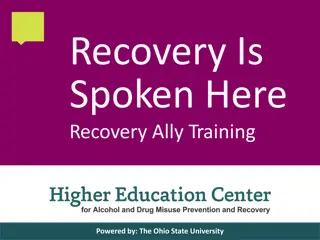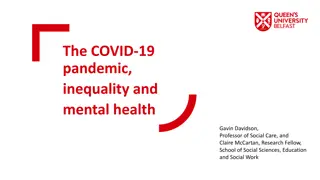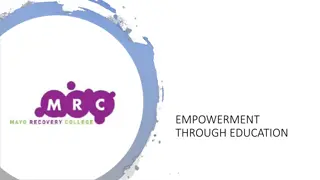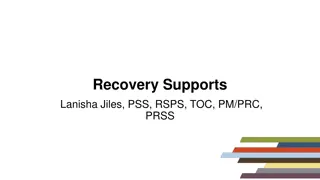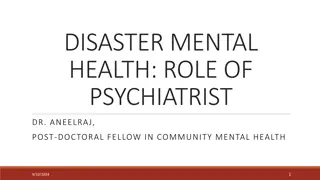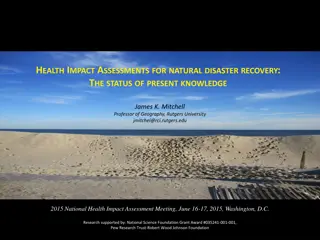Understanding the Importance of Social Skills for Mental Health Recovery
Social skills play a crucial role in how we communicate, interact, and form relationships with others. They are essential for personal, social, and professional success. Neglecting social skills can hinder mental health recovery, as they contribute to social recognition, acceptance, and building social capital. Investing in teaching social skills can lead to improved opportunities and relationships, ultimately enhancing one's social network and overall well-being.
Download Presentation

Please find below an Image/Link to download the presentation.
The content on the website is provided AS IS for your information and personal use only. It may not be sold, licensed, or shared on other websites without obtaining consent from the author. Download presentation by click this link. If you encounter any issues during the download, it is possible that the publisher has removed the file from their server.
E N D
Presentation Transcript
Social Skills defined Social skills are the skills we use to communicate and interact with each other, both verbally and non-verbally, through gestures, body language and our personal appearance. Human beings are sociable creatures and we have developed many ways to communicate our messages, thoughts and feelings with others. The foundations for many other skills are built on strong interpersonal skills, since these are relevant to our personal relationships, social affairs and professional lives. There isn't one social skills; there are many. Remember, like any skill, it can be developed with practice.
Social Skills Do you feel confident interacting with others? Can you communicate clearly? Are you likeable? Are you memorable? Do people remember your name after meeting you? Are you able to pitch yourself? Do you stand up for yourself in social situations?
Why teach social skills? Social recovery is perceived as a key dimension of mental health recovery, albeit a relatively neglected one. This neglect is due to the placement of mental health recovery as primarily a clinical and medical issue. Following Bourdieu, social recovery is perceived to be the journey of people experiencing mental ill health towards regaining social recognition and acceptance, in the form of their social identity and presence. As distinct from personal recovery, yet interrelated to it, social recovery includes the components of interdependence with others, connectedness and social capital.
Why teach social skills? Social skills are part of building social capital and act as a gateway to building a network of support. There is a close connection between opportunities and relationships. Like the old adage, "It's not what you know. It's who you know." Social networks are the ultimate outcome from social skills instruction. Unfortunately- when there are individuals with restricted interests who find it difficult to connect with others outside of that interest, their social networks are usually smaller than other people.
Social Skills scenarios How comfortable would you feel at: a random house party the hairdressers a public speaking event a Recovery College class What is needed for social success in each of the above settings/events? Might some of us become more socially skilled than others in the above situations. If so, why?
There isn't one social skill; there are many.
Social Skills https://youtu.be/4nm3vgg8k-0
Comedian Linchpin Listener Conversationalist Influencer Magnet Storyteller Nurturer Speaker Decoder Leader Dreambuilder Chameleon Connector https://www.scienceofpeople.com/social-skills/
Social Skills audit Read this article here to learn more about the 14 key social skills. Consider the following questions: Which social skills do you have? (Vanessa Van Edwards argues that there are 14 key social skills - see previous slide - that we should develop. Identify your top three social skills that you can leverage and a bottom skill you should work on. Top three social skills: 1) 2) 3) Skill to develop: 1)
Sentence completion exercise Thinking about social situations, how do you tend to think, feel and act. Complete the following sentences: 1. I am too... 2. I shouldn't be so... 3. I should be more...
Our conversations invent us, explains Dr. Lerner. Through our speech and our silence, we become smaller or larger selves. Through our speech and our silence, we diminish or enhance the other person, and we narrow or expand the possibilities between us. How we use our voice determines the quality of our relationships, who we are in the world, and what the world can be and might become. Clearly, a lot is at stake here.






